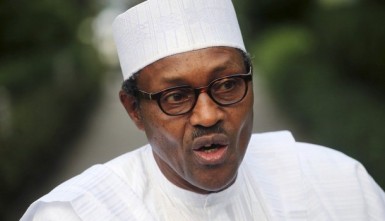ABUJA, (Reuters) – Three decades after seizing power in a military coup, Muhammadu Buhari became the first Nigerian to oust a president through the ballot box, putting him in charge of Africa’s biggest economy and one of its most turbulent democracies.

As the scale of this weekend’s electoral landslide became clear, President Goodluck Jonathan called Buhari yesterday to concede defeat to the opposition leader, an unprecedented step that should help to defuse anger among Jonathan’s supporters.
In the religiously mixed northern city of Kaduna, where 800 people were killed in violence after the last elections in 2011, Buhari supporters streamed onto the streets, waving flags and dancing and singing in celebration.
In a short concessional statement, Jonathan wished his opponent well and urged his supporters to keep their cool, saying nobody’s political ambition was “worth the blood of any Nigerian”.
“The unity, stability and progress of our dear country is more important than anything else,” he said.
Yet his supporters in the volatile Niger Delta, his home region and the heart of Africa’s biggest oil and gas industry, were despondent.
“Goodluck is a stupid man for conceding, a disappointment for Nigeria,” one waitress in the oil city of Port Harcourt said, throwing a beer bottle top at a fridge.
Jonathan’s People’s Democratic Party (PDP) has been in charge since the end of army rule in 1999 but had been losing popularity due to a string of corruption scandals and the rise of Boko Haram’s Islamist insurgency in the northeast.
“At about five minutes to 5, President Jonathan called General Muhammadu Buhari, the winner of the elections, to congratulate him,” Lai Mohammed, a spokesman for Buhari’s All Progressives Congress (APC), told reporters at the party’s headquarters in the capital, Abuja.
“There had always been this fear that he might not want to concede but he will remain a hero for this move,” he added. “The tension will go down dramatically.”
Around him, women in brightly coloured dresses danced and sang, ululating in celebration.
A final tally of the results compiled by Reuters gave the sandal-wearing and ascetic Buhari 15.4 million votes against 13.3 million for Jonathan, a margin of victory that is likely to render any legal challenges irrelevant.
Despite some technical glitches and the killing of more than a dozen voters by Boko Haram gunmen, the election has been the smoothest and most orderly in Nigeria’s history.
“There are probably lots of reasons why the PDP might have lost but I think the key one is that the elections just haven’t been rigged,” said Antony Goldman, a business consultant with high-level contacts in Nigeria.
As the results trickled in, Buhari, dressed in a white khaftan and prayer cap, sat calmly in a front a television at a house in the capital.
Buhari seized power in a 1983 coup only to be ousted 18 months later by another general. Since then he has declared himself a convert to democracy, running and losing several elections but always coming back for more on a ticket of cleaning up Nigeria’s dirty politics.
Before Jonathan conceded defeat, Buhari received a tacit endorsement from Washington, with a U.S. official acknowledging his role in building a “new” Nigeria, a pillar of a rapidly modernising and growing continent.
“His leadership of the opposition over these years has demonstrated a commitment to democracy that would seem to suggest he is participating in Nigeria’s new era that began in 1999,” the U.S. official said.





